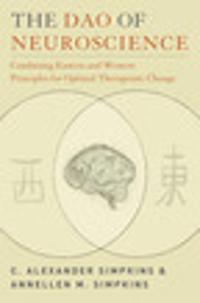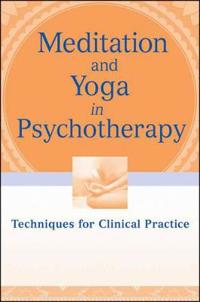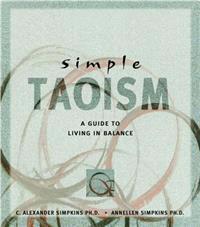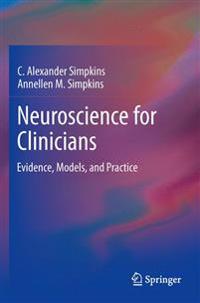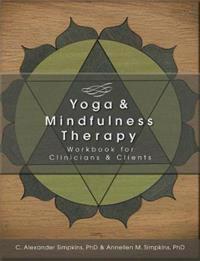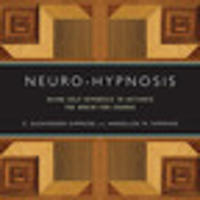Simple Zen (Häftad)
avC. Alexander Simpkins, C. Alexander, Annellen M. Simpkins
ISBN: 9780804831741 - UTGIVEN: 1999-05Simple Zen is a comprehensive and accessible introduction to Zen's history, themes and uses in our modern Western world. Beginning with a history of Zen from the time of its origin until the present, the books goes on to outline the themes and practices associated with it, such as koans, meditation[...]
The Dao of Neuroscience (Inbunden)
avAnnellen M. Simpkins, C. Alexander Simpkins
ISBN: 9780393705973 - UTGIVEN: 2010-05Neuroscientists have made huge advances in our understanding of the brain, and yet as scientists learn more, paradoxes arise. How does the brain--a material substance--relate to and produce nonmaterial thoughts and emotions? What explains the research showing that non-rational, unconscious experienc[...]
Meditation and Yoga in Psychotherapy: Techniques for Clinical Practice (Häftad)
avAnnellen M. Simpkins, C. Alexander Simpkins
ISBN: 9780470562413 - UTGIVEN: 201011Praise for "Meditation and Yoga in Psychotherapy""From the wisdom of ancient cultures to modern neuroscience, the authors skillfully create a bridge of understanding between the practice of meditation, yoga, and psychotherapy. The Simpkins are at their best in describing how everyone can learn to in[...]
Zen Meditation in Psychotherapy: Techniques for Clinical Practice (Häftad)
avC. Alexander Simpkins, Annellen M. Simpkins
ISBN: 9780470948262 - UTGIVEN: 2011-12-31Zen meditation presents a practical advantage to people undergoing psychotherapy as a practice providing tools for seeing directly and objectively, a skill which many clients lack. This inspiring guide provides clinicians with the neuroscientific and clinical evidence supporting the use of meditatio[...]
Simple Taoism: A Guide to Living in Balance (Häftad)
avC. Alexander Simpkins, Annellen M. Simpkins
ISBN: 9780804831734 - UTGIVEN: 199905Simple Taoism is designed to help the reader understand what Taoism is about and to help apply its best aspects to everyday living. Divided into three parts, the book outlines the background and development of the philosophy, illustrated with stories to bring the history to life. It then explains [...]
Neuroscience for Clinicians (Häftad)
avC. Alexander Simpkins, Annellen M. Simpkins
ISBN: 9781461448419 - UTGIVEN: 201209This book fills the need for an introductory text that opens the field up to the beginner and takes them to higher-level thinking about neuroscience. Neuroscience has captured the interest of students, professionals, and the general public. In fact it is so new, that there are very few books that ga[...]
Yoga & Mindfulness Therapy Workbook for Clinicians and Clients (Häftad)
avC. Alexander Simpkins, Annellen Simpkins
ISBN: 9781936128839 - UTGIVEN: 2014-03Bringing together philosophy and science with hands-on exercises, journaling, and charts, this practical workbook by psychologists and best-selling authors C. Alexander Simpkins, Ph.D., and Annellen M. Simpkins, Ph.D., is organized to include: * The tools to get you started: preliminaries, quick ti[...]
Neuro-Hypnosis (Pocket)
avC. Alexander, Ph.D. Simpkins, Annellen M., Ph.D. Simpkins, C. Alexander, Ph.D. Simpkins
ISBN: 9780393706253 - UTGIVEN: 201010Presented here is the latest research on the neurological processes that occur during hypnosis. Readers are provided with the tools needed to use self-hypnosis to address a number of concerns, from mood disorders to eating issues.[...]


